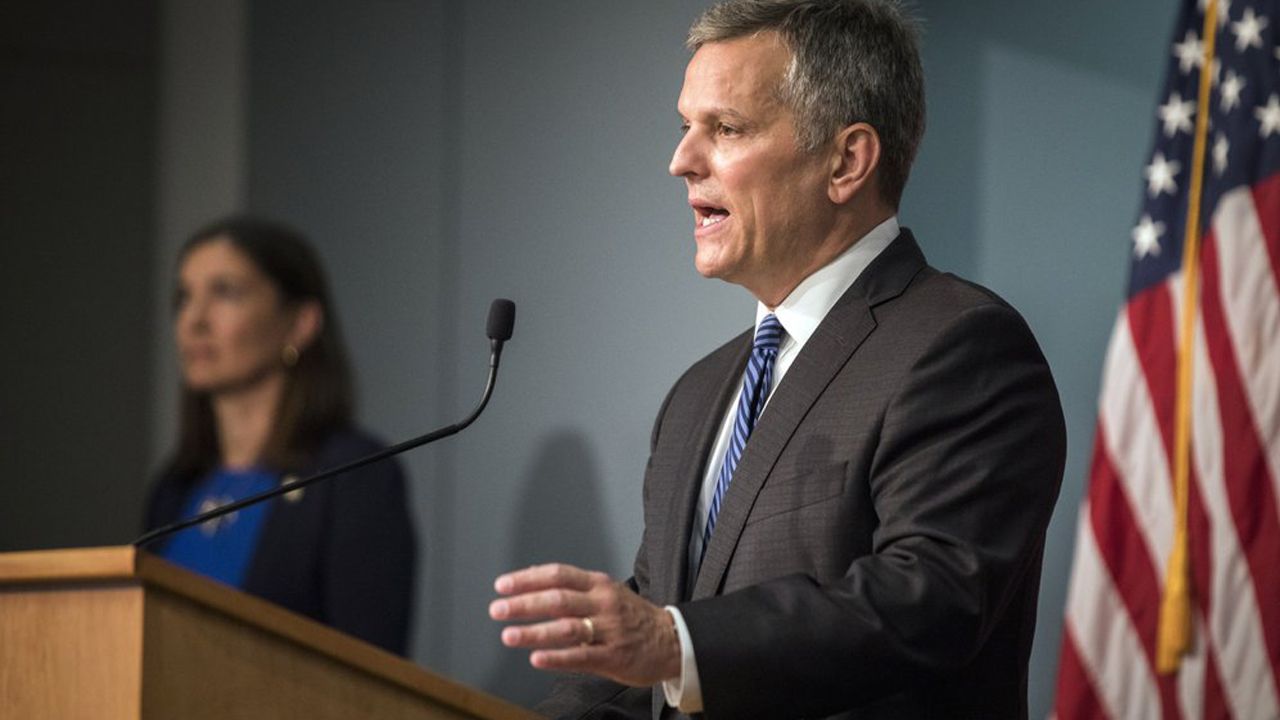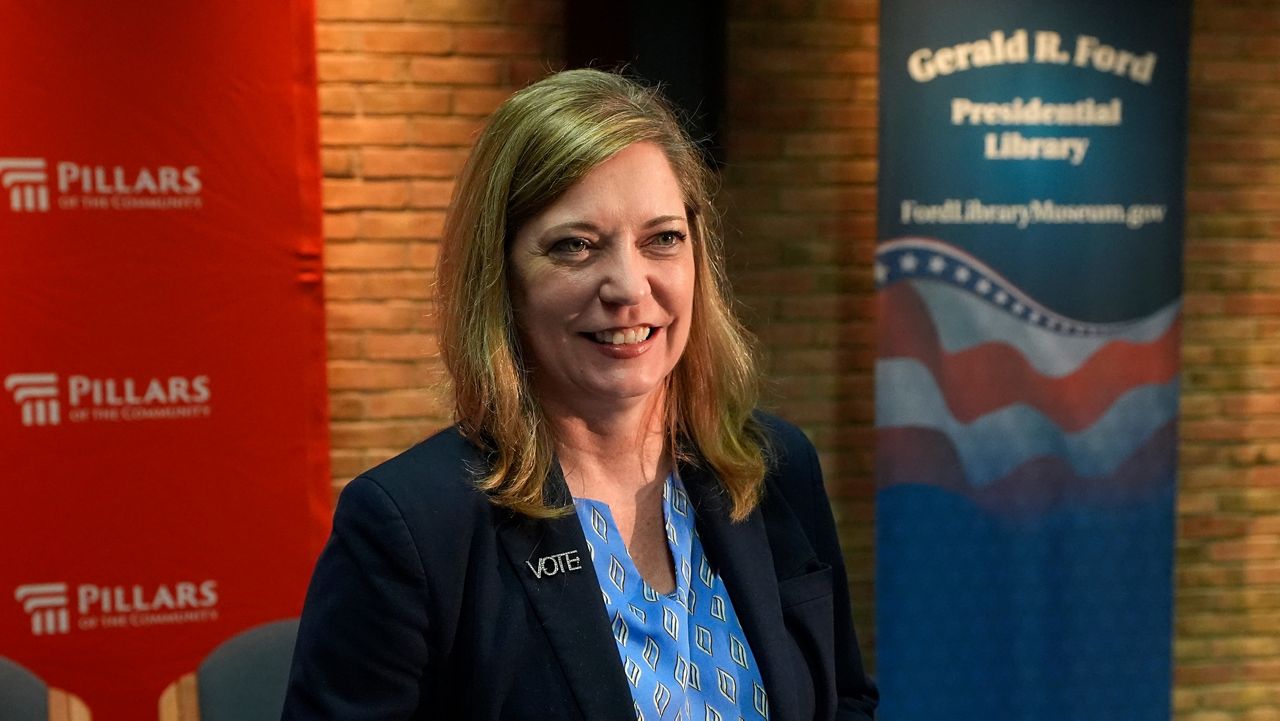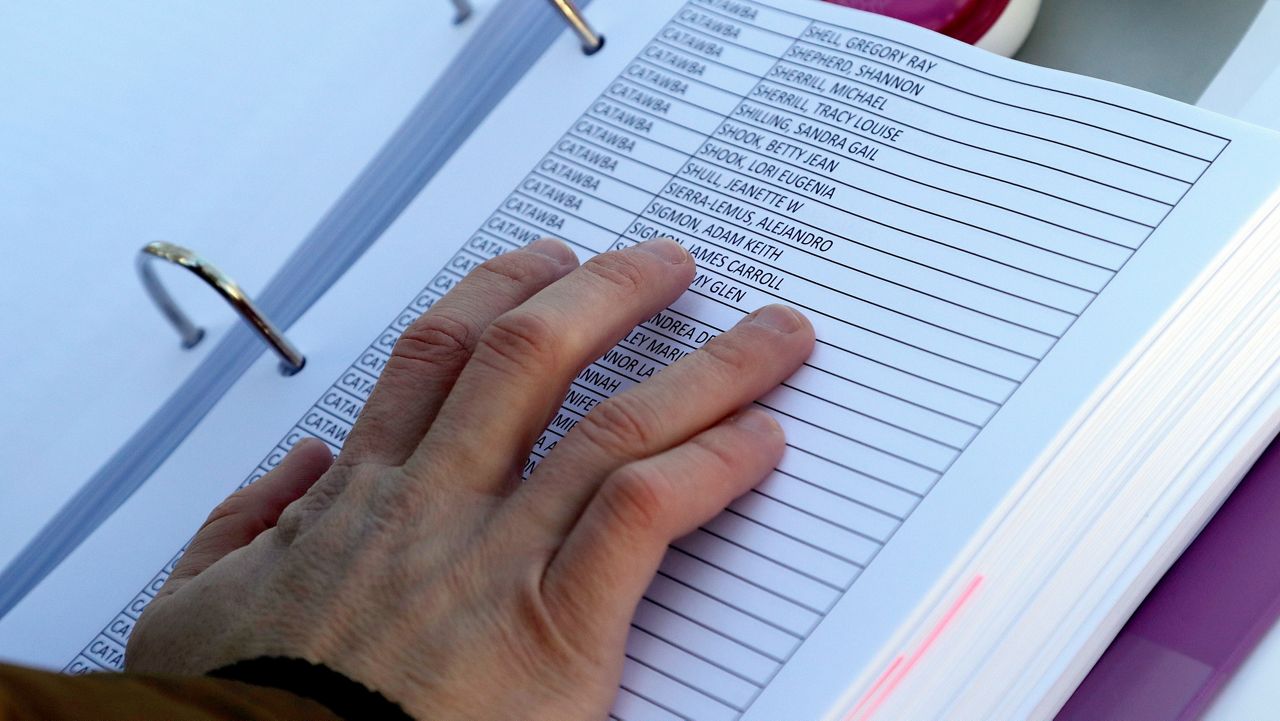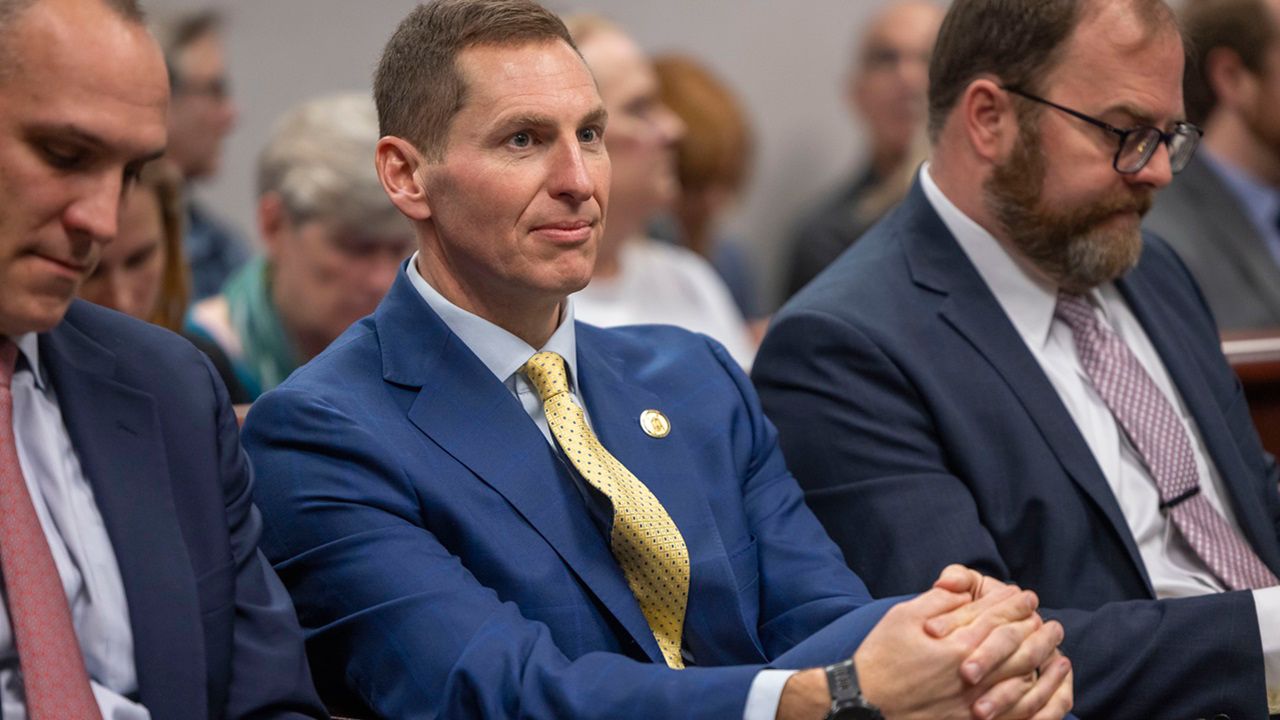RALEIGH, N.C. (AP) — N.C. Attorney General Josh Stein's campaign asked a federal judge on Thursday to strike down a state law that enabled authorities to investigate an ad the campaign ran targeting Stein's 2020 challenger.
The statute is archaic and violates First Amendment free speech protections, the campaign says in a lawsuit filed in U.S. District Court.
In the past year, the State Bureau of Investigation interviewed Stein, his campaign staff and a woman who appeared in the ad, the suit says. It adds that SBI agents became involved after the State Board of Elections investigated and made a recommendation to the Wake County District Attorney's Office.
Now, the lawsuit says, “enforcement action” by the Wake DA’s office “appears imminent.” It doesn’t elaborate. Any charges against anyone associated with Stein would be a political blow to the state’s top law enforcement officer, who is also a possible 2024 Democratic candidate for governor.
“After two years of this baseless investigation — with which we have fully cooperated — we have had enough,” Stein said in a news release. “We are asking the court to step in and declare this statute unconstitutional. It’s past time to resolve this issue.”
Related: North Carolina AG won't seek to renew 20-week abortion ban
Stein's former Republican challenger, Forsyth County District Attorney Jim O'Neill, is mentioned often in the lawsuit. O'Neill's campaign filed a complaint in September 2020 with the State Board of Elections against Stein's campaign over the ad, which focused on untested rape kits held by local law enforcement agencies. Stein ultimately defeated O'Neill by fewer than 14,000 votes.
The complaint said there was probable cause that Stein violated a law prohibiting anyone from knowingly publishing or circulating false information about a candidate with the intent of hurting that candidate's chances in the election. Violation of the law is a misdemeanor.
The contested law is overbroad, seeks “to regulate, as well as criminally punish, core political speech,” and is similar to laws in other states that have been struck down, the lawsuit states. Plaintiffs in the suit are Stein's campaign, the consulting firm that produced the ad and the woman who appeared in the commercial. The law dates back to at least 1931, and there appear to be no reported cases or applications in legal records, Stein's attorney, Press Millen, writes in the suit.
The ad featured a woman who asserted that O’Neill “left 1,500 rape kits sitting on a shelf” in Forsyth County. O’Neill said at the time that the ad was bogus because police agencies, not prosecutors, are responsible for testing the kits.
The lawsuit called the ad a “corrective political advertisement” designed to counter false accusations by O'Neill that Stein had failed to act on over 15,000 untested rape kits during his time as attorney general.
Wake District Attorney Lorrin Freeman said in a phone interview Thursday that she had recused herself from the case, citing a close working relationship with both Stein and O'Neill. Since then, Assistant District Attorney David Saacks has handled the case, Freeman said. She said Saacks had no comment.
State Board of Elections spokesman Pat Gannon said by email late Thursday that it would be up to the Wake DA's office to decide whether evidence in the investigation can be released.
O'Neill said in a statement late Thursday that Stein is attempting to interfere with potential grand jurors in Wake County with his public statements.
"Why would Stein challenge the constitutionality of a law that prohibits candidates from running false ads to the public, if he claims that he stands by the veracity of his own ad?” O'Neill asked.
One of Stein's jobs as attorney general is to defend state law. Given that his campaign is seeking to overturn a law, state elections board members and Freeman — the lawsuit defendants — will be represented by private-practice lawyers.








